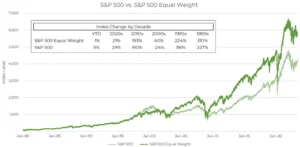By Andrew Bennison, M.B.A., J.D
ChatGPT is a software synthesizing data from across the internet to build a tool able to generate human-like responses to a wide range of prompts and questions.
Before we go any further, let’s take a step back in history. Meet Alan Turing, a philosopher and mathematician. Turing is credited with developing the first computer during WWII, which was used to crack enemy codes. Ever the philosopher, Turing went on to ponder whether his creation could ever behave “intelligently.” Rather than try to define intelligence, Turing did what philosophers do—he thought up a test. What became known as the Turing Test says that a machine is intelligent in the sort of way we care about if it can fool a human involved in a blind conversation that it too is human.
Debate still surrounds the Turing Test and what exactly “intelligence” is. Though imperfect, Turing’s ideas have underpinned programmers’ pursuits for decades. ChatGPT is perhaps best understood as the latest advancement in our journey to create something not just smart and powerful, but truly and deeply intelligent in the spirit Alan Turing imagined.
Advancements in AI are already changing our economics in important ways. Companies are leveraging the power of new technology daily. But we must think deeper than the obvious implications—after all, anyone could see the printing press would change publishing forever but few considered the degree to which it would shrink our world. I believe we are better served thinking about the second, third, and fourth order implications of artificial intelligence. Interestingly, ChatGPT itself may have some insight.
So, I asked ChatGPT, “What’s the relevance to investors?”
ChatGPT is relevant to investors because it can analyze large amounts of data and provide valuable insights, helping them make informed decisions. It can be used to analyze market trends, conduct financial analysis, and automate customer service interactions. By leveraging ChatGPT’s machine learning capabilities, investors can create predictive models to identify patterns and forecast market movements. Using ChatGPT can optimize portfolios, mitigate risks, and improve customer satisfaction, leading to better investment outcomes.
“What about its limitations in the investing context?”
Firstly, ChatGPT’s responses are based on the data it has been trained on, and its ability to generate accurate insights relies on the quality and relevance of that data.
Secondly, ChatGPT is a relatively new technology and its adoption is still in its early stages. As such, there is a lack of established best practices and guidelines for its use in investing, and there may be regulatory and ethical considerations that need to be taken into account.
Thirdly, ChatGPT’s responses are generated based on statistical patterns in the data it has been trained on, and as such, it may not always be able to capture the nuances and context of a given situation. This can lead to errors or oversights in its analysis and recommendations.
ChatGPT’s first and second points are more a matter of honing the tool than substantive limitations of its use. But the third limitation is profoundly meaningful.
The limits of ChatGPT in investing cut to the heart of Turing’s questions 73 years ago on the nature of intelligence. To the degree investment questions involve human behavior and that behavior is random, AI models will have difficulty predicting outcomes. Further, if investment decisions are entirely computer-based in the future, then how useful would decision programs based on prior data from human actions be?
Even if those complications are resolved, the crux remains what it always has been—namely, a tool may tell us the optimal decision to make, but how one navigates the human element of the decision is where the value lies. I am excited and optimistic for what AI will add to our toolbox but I am determined not to lose sight of the maxim that a tool is only as valuable as its user is wise.
Our world is changing rapidly. Double entry accounting, the printing press, computers, and the internet changed landscapes permanently. In the same way, artificial intelligence is opening new doors that companies with ample capital and capable leadership are walking through as you read these words.
At JGP, we believe long-term ownership of companies with strong balance sheets, seasoned management, and cash flow growth tips the scales in favor of investors. The companies we own have the tools to walk through new doors, take market share, and improve shareholder value. We feel honored to take part in that journey.






